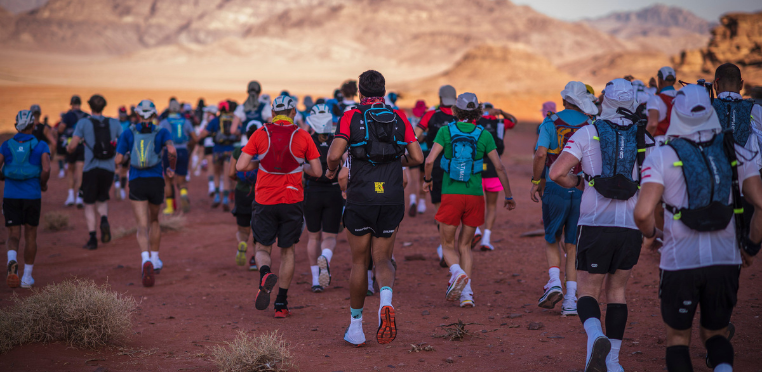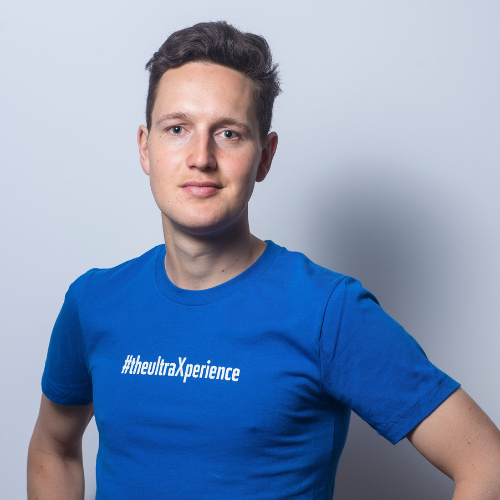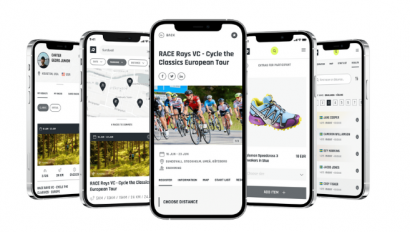From Humble Beginnings To Global Ultra Marathon Series: The Rapid Rise Of Ultra X

Sam Heward is a co-founder at Ultra X, one of the world’s leading ultra marathon series with races in eight different counties and distances ranging from 25 – 250 kilometres.
Along with his co-founder Jamie Sparks, the duo started out in 2018 putting on their first Ultra X event in Jordan (then called the Wadi Rum Ultra), that race had 35 finishers. Since then, the Ultra X team have grown their series into thousands of participants, along with an excellent reputation with athletes describing races as ‘life-changing’ and amongst the ‘best races they had ever done’
But it hasn’t always been a bed of roses, Sam shares some of his insights with RaceID on lessons learned and a few tips and tricks for growing a global race series.
Are races about performance or participation?
That’s a fantastic question. At Ultra X, we truly believe in the balance between performance and participation. While pushing your personal limits and aiming for peak performance is exhilarating, what we focus on is inclusivity and camaraderie. Every participant, regardless of experience or background contributes to the vibrant tapestry of our races and for many the highlight of an event is camp life, the human connections made and not the physical challenge.
So, it’s not just about crossing that finish line but also about the shared journey and the connections made along the way. Many come to Ultra X events with a focus on it being a performance challenge but the reason they come back is because of the friends made and the community.
For me personally, it’s the annoying answer of “it depends”. I’m insanely competitive and always looking to challenge and better myself but at the same time I’m conscious that this can lead to excessive pressure on events and not taking in the experience for all it may be. So the truth is that races can be about both.
What is your top piece of advice for a beginner or someone who is new to ultra running?
Pick an event and don’t think about it too much. I’m a huge believer that everyone is capable of completing an ultra and the biggest barrier to completing is not believing this! We’ve had all ages, stages, shapes and sizes complete our events. Because the intensity of ultra running is much lower than shorter distances and a lot of it involves walking they are actually more accessible than shorter distances and have far less time pressure.
In terms of training, I’d advise newbies to embrace the process. Ultra running isn’t just about the race day; it’s about the months of training, the highs and lows, and the personal growth that comes with it. Be patient with yourself, listen to your body, and focus on consistency over intensity. And most importantly, remember to enjoy the adventure. The journey is just as important as the destination.

How would you describe the atmosphere at Ultra X races?
Picture this: people from all walks of life coming together, united by their love for the sport and their shared aspiration to conquer their personal limits. There’s a palpable sense of encouragement and support in the air, with participants and staff alike cheering each other on. It’s not just a competition; it’s a community of like-minded individuals pushing their boundaries while forming lifelong connections that feels part big brand event, part big happy family.
What makes a good long distance course?
Designing a stellar course is an art in itself. It’s about finding that delicate balance between challenge and beauty. A good course should showcase the best of its surroundings while also offering a variety of terrain in a way that crafts a journey that leaves an imprint on runners. I always feel that any runner should be able to sit next to someone in a pub and be able to explain the course in one sentence that makes the person next to them think “That’s pretty awesome”.
What is the most important thing event organisers can do to grow their event?
Simple. Put on a great event!
How important is responsive customer service function?
It’s important but it’s more important that all the information is somewhere that competitors are able to find it. Investment in detailed information packs and FAQs which are constantly being updated are a better use of time than worrying about responding straight away in my view.
What do you think the bedrock of any race marketing plan should be?
Considering the answer to the one line response “Why X event” and focus on communicating that message.
Does your event promotional language differ based on target audience (25km vs Ultra) or is the messaging similar?
We organise events from 25 – 250 kilometres so there is a slightly unique approach for each one. Whilst our messaging is not that different between events (we will always aim to offer beautiful, fun and challenging events) the targeting will differ considering the types of person (s) that we think might value the event proposition. This might be geographic, demographic, based on experience or based on previous interaction with Ultra X.
What are some of the common mistakes you see from organising races?
Panicking when things go wrong, not preparing for adverse weather, forgetting that almost every situation can be resolved with good communication. We’ve been there…
Want to learn more about how to market your race? Read this article for a general overview of all your marketing options, and go to the marketing section of the blog! If you need extra help to get more participants, consider a RaceID Marketing Package.
Photo courtesy to Ultra X


